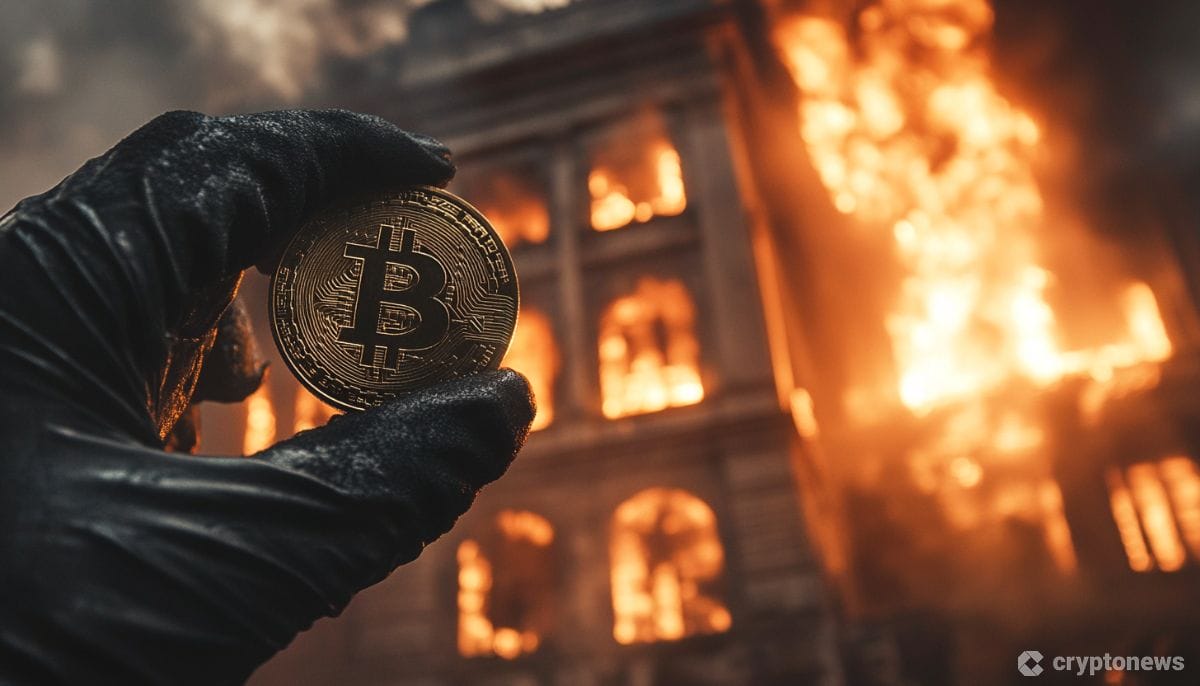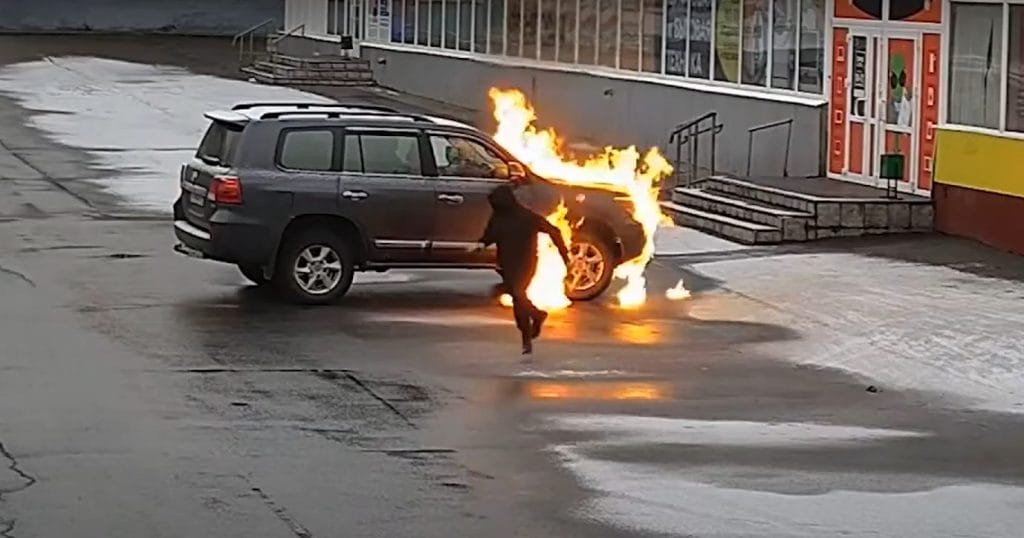Last updated:
 Why Trust Cryptonews
Why Trust Cryptonews

Crypto-paying Russians are using the darkweb to hire arsonists and criminals who carry out assaults on their behalf, a report has claimed.
In a major investigation, Izvestia provided evidence of scores of fires and beatings carried out by hardened criminals – including murderers – using darkweb portals, the Telegram chat app, and crypto wallets.
Darkweb Arsonists Active in Major Russian Cities?
Izvestia explained that “requirements for applicants for would-be arsonists are low.”
“Potential participants must provide a photo to demonstrate they have adequate leves of physical fitness. That lets customers verify the [criminal’s] ability to complete the task. Most often, these mercenaries are paid in cryptocurrency after they provide their customers with a photo or video evidence of the arson.”
Russian newspaper Izvestia
Quoting police sources and its own investigations, the newspaper claimed that “anonymous darkweb forum posters” advertise “popular” arson “services” for “cars, apartments, cafes, and shops.”
In many cases, police say they “manage to quickly find the perpetrators.” But, they admit, it is “much more difficult” to find the people who paid for these crimes.
One suspected arsonist, police said, was detained in Kaliningrad for “a series of fire attacks” after serving 10 years in prison for murder.

However, it seems that not only older criminals, but also “teenagers” are getting paid in crypto to start fires. The media outlet explained:
“In the fall of 2024, a series of similar crimes took place in the Moscow region. They were united by a common pattern. Teenagers were setting fire to cars or the entrance of apartment buildings. They all spray-painted a treble clef nearby.”
Izvestia said that it “managed to contact” this group’s “alleged organizer,” who is “known on the darknet under the moniker Pianist.”
This individual reportedly “immediately confirmed” that he had received requests to commit arson. And he said he mostly “didn’t care at all who” was paying him to do this.
Pianist also claimed that the “motives of the customer and the risk of revenge” from the targets of his attacks were of “little interest” to him.
Arsonists Paid $750 Per Job
However, Pianist, claimed that he “immediately rejects” requests “from the Ukrainian special services,” claiming:
“I am a Russian patriot. So my work is not political in nature.”
The media outlet also published what appeared to be a price list of arson-related services.
“Simple” arson costs “customers” around $1,500, with those setting the fires paid around $750 worth of crypto.
In one instance, a blogger “who writes about cryptoassets” appears to have been targeted by arsonists.
The blogger’s BMW was allegedly torched “by four 17-year-old boys” in Moscow last month.
The outlet said it had also seen evidence that teenagers and older criminals had been paid to “smash store windows” and cause “serious bodily harm.”

The Russian Prosecutor General’s Office appears to be wise to the rapid spread of crypto-powered crime.
Earlier this month, it held a “coordination meeting” on “combating crimes using the internet, cryptocurrency, and IT resources.”
“In 2023, we seized 19,800 digital communication tools, including 10,300 from [prisons]. We also confiscated 12,600 SIM cards. These were all used to steal other people’s property, commit crimes against children, sell drugs, and perpetrate other serious crimes.”
Russian Prosecutor General’s Office
Also this month, a Moscow Oblast court sentenced former Investigative Committee Major Marat Tambiev to prison for 16 years.
The court found him guilty of taking a BTC 1,032 bribe from the Infraud hacking and credit card fraud group.


















